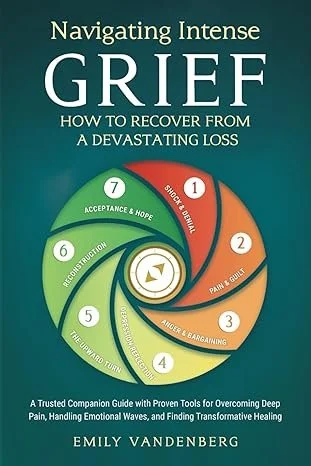
〰️Check out the New Blogs
〰️Check out the New Blogs
The Retired Widow
More about The Retired Widow
There are over 9 million retired widows in the United States. We all have unique stories to tell along with experience and wisdom to impart. My name is Bethanne, and I’ve been a widow since 2020 and retired in 2024. I want to share some things I’ve learned along the way. Please come along with me on this journey navigating the life of The Retired Widow.
January 2026
Monthly Theme: Renewal
A fresh start doesn’t mean starting over; it means starting wiser.
Happy New Years!
I love New Years. It’s a time for renewal. It’s a time for resolutions. But if you’re like me, I don’t keep them. A few years ago, I read James Clear’s book, Atomic Habits (see below in recommended reading), and I learned that keeping small habits are more effective than huge resolutions. My copy is dog-eared and every page is highlighted. The book has helped me transition from a hot mess to a more peaceful person. I highly recommend it. You don’t have to go whole hog into the process. Take a small step into your renewal. This month is about baby steps. Let’s take these together.

Week 2
January 11 - 17, 2026
Keep What Worked
Starting wiser means carrying forward what serrved you well.
You’ve already survived hard things.
You’ve already learned, endured, and grown.
Evverything strong within you is still here guiding you forward.
Trust the wisdom you’ve learned.
Call to Action
Write down three things that have helped you in the past. This could be habits, perspectives, or people. Intentionally carry them frard this month.

EAT
January 11 - 17, 2026
Sunday
Brunch after church with friends.
Monday
Air Fried Chicken Tenderloins on top of Salad Greens with Raspberry Vinaigrette
Tuesday
Pasta with Tomatoes and Parmesan Cheese (see recipe below) and Salad Greens with Italian Dressing
Wednesday
Mile High Turkey and Swiss Sandwiches with Chips and Kosher Dill Pickles
Thursday
Beef Cubed Steak with Brown Gravy, Garlic Potatoes and Onions, Braised Carrots
Friday
Chinese Take-out
Saturday
Sausage, Eggs, Biscuits, Hash Browns (air fried)
Recipe of the Week
Meatless Pasta with Tomatoes and Parmesan Cheese
This is one of my favorite quick and easy recipes. I usually have all of the ingredients on hand. It’s filling, warm, and easily adjustable for 2 or 12.
Servings: 4 - 6
Prep Time - 10 min
Cook Time - 20 min
Total Time - 30 min
Equipment - Heavy bottomed pot
Ingredients:
½ lb (227 gm) Pasta of Choice - I use shells, fusilli, penne, or farfalle
1 15 oz can (411 gm) of petit diced tomatoes
½ tsp. (7 gm) Sugar
½ Tbs. (2 gm) Dried Italian Seasoning
½ tsp. (1 gm) Garlic Powder
½ tsp. ( 1 gm) Onion Powder
1 tsp. (6 gm) Salt and more for boiling pasta
½ tsp. (1.5 gm) Pepper
½ cup (30 gm) Parmesan Cheese
Directions:
Cook pasta according to package directions. When pasta is done, reserve 1 cup of the pasta water and drain the rest. Return to pot.
Add diced tomatoes along with juice, sugar, Italian seasoning, onion powder, garlic powder, salt and pepper to taste to the pot with pasta. Reduce heat to low. Cook for 5 minutes being careful not to let pasta burn.
If pasta seems too dry, add pasta water to desired consistency.
Remove from heat, add Parmesan cheese and enjoy.
Refrigerate leftovers for 3 - 5 days. Reheat on stovetop or microwave.
See? Easy-peasy and oh so good!
Disclaimer: I’m not a medical professional. I share personal experiences and observations from my own life, including what works for me while managing diabetes. Everyone’s health needs are different, so please consult your healthcare provider before making changes to your diet or routine.

Have You Tried This?
Lomon Knitted Sweaters for Women V-Neck Collared Top
I have a friend that calls me the $40.00 Diva because I’ll only spend about $40.00 for articles of clothing. I do make an exception for shoes. I have difficult feet and need to spend more for comfort. I’ve given up on the heels. It’s just not worth it. A comfortable pair of tennis shoes is far more valuable.
I’ve given up on shopping at stores any more. It’s easier to open up Amazon and find exactly what you’re looking for. The last time I was in a department store, it was overwhelming. I didn’t have the energy to go through the racks and racks of clothing to find ANYTHING I wanted to spend money on. I usually walk away frustrated and mad.
So I shop Amazon…a lot. I have something in mind. I have an idea of what I want to spend, and off I go. I know it’s not always the best long-lasting fashion. I’m not into that anymore. I don’t need clothing that I can wear for decades. I need disposable fashion. I want something I can wear for 2 - 3 years and then pass it on.
So I was looking for a new sweater. I had requirements. It needed to be v-necked, lightweight knit, and washable. And I found it! This sweater met all of my criteria. This is a long-sleeved v-neck sweater made of 50% viscose, 28% polyester, and 22% polyamide (I have no idea what this is). I ordered a medium in wine red. And, oh my goodness it did not disappoint.
The fit was perfect. Not too tight; not too loose. The lightweight material is perfect for the not-so-cold fall and winters in the south. The first wear I styled it with gray flared yoga pants. It was perfect for running errands and hanging at the house. I can see it working with a cream colored pencil skirt or a pair of black cigarette pants. I am so happy with this purchase. Yes, it is absolutely worth the $17.50 (half price sale on the wine red) I paid for it.
Yay! My $40.00 Diva reputation is still intact.
Disclaimer: I’m not a medical professional. I share personal experiences and observations from my own life, including what works for me while managing diabetes. Everyone’s health needs are different, so please consult your healthcare provider before making changes to your diet or routine.

LEARN
Book Review
I was searching for a book that could help me understand why, even years later, I can still be struck by grief like a bolt of lightning. There are moments when I instinctively reach for my phone to tell my husband something, only to remember—again—that he’s been gone for over five years. These moments come less frequently now than they did in the early days, but when they do, the pain feels just as fresh.
The Grieving Brain by Mary-Frances O’Connor, PhD, offered me both comfort and insight. What stood out most was how O’Connor, a neuroscientist and psychologist, explains that grief isn’t just emotional—it’s neurological. She explores how the brain processes the loss of a loved one, why grief feels the way it does, and how our minds struggle to reconcile a new reality with a deeply ingrained emotional bond.
I found this book incredibly helpful in understanding the nature of grief. O’Connor presents the science in a way that’s accessible and compassionate. She also emphasizes the value of connection—through conversation, community, and therapy—in helping people like me cope with loss. Her message is not about “moving on,” but about finding ways to live a meaningful and productive life, while still honoring the person we’ve lost.
This book reminded me that grief is not a failure to heal—it’s a reflection of the love we carry. For anyone navigating the ongoing waves of loss, The Grieving Brain is both a guide and a gentle companion.










